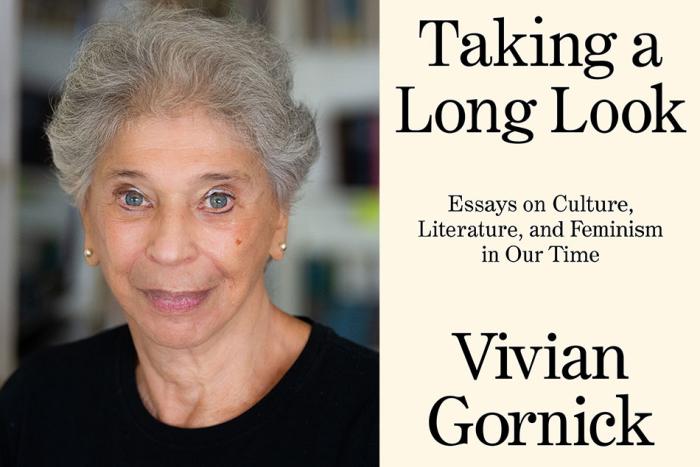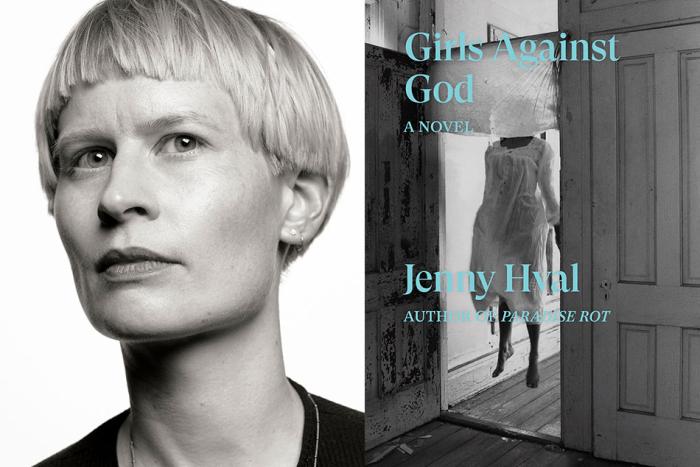After American writer Danielle Geller’s mother passed away from alcohol withdrawal during a period of homelessness, she was left with an old leather suitcase filled with her mother’s diaries, photos, letters, and other personal documents. Geller wasn’t raised by her mother and in the aftermath of her death, she began combing through the ephemera to search for clues to better understand a woman she hardly knew. A trained librarian and archivist, Geller used the diaries and letters to retrace her mother’s history, from leaving the Navajo reservation at 19 and marrying Geller’s father, to becoming a mother and struggling with addiction.
Geller would write for up to 16 hours a day about their relationship and her own childhood. Every time she finished a section, she’d mail it to her sister Eileen, who at the time was serving a short sentence in jail. These letters would eventually become the first draft of Geller’s debut memoir, Dog Flowers (One World).
In Dog Flowers, Geller artfully braids together her mother’s history with her own personal story, a process that reveals how intergenerational trauma, harmful relationships, addiction, and immense grief rippled through both of their lives. The memoir also follows Geller’s journey of meeting her mother’s extended family on the reservation and exploring the Navajo identity she felt disconnected from by being raised by her white paternal grandmother. Throughout the book, some of her mother’s personal belongings, like old family photos, childhood drawings, and diary entries, are presented as though in a public archive.
In the final week of January, I spoke with Geller about family, missing the desert, and practicing forgiveness.
Samantha Edwards: When you started writing Dog Flowers, you sent what would become the first draft to your sister Eileen. What was her reaction? I believe at one point, she said you couldn’t publish what you had written.
Danielle Geller: Yeah [laughs]. Actually, many people have said that to me over the years. My sister, my aunt, basically everyone was trying to put limits on what I was writing or how I was writing about it. That was part of the book—there were so many secrets, so many things left unsaid. It felt like it was all contributing to the hurt and preventing us from healing or repairing our relationships. I was mailing my sister these giant, thick envelopes filled with all these pages I was writing. At first I was writing about our childhood and things she didn’t remember, so it was a way for her to experience her childhood in a way that she didn’t have access to. But as the pages I was writing got closer to the present and about some of her struggles with addiction and things she felt shame about, she wanted me to turn it into fiction. [She’d say,] “Why does it have to be true? Why can’t you change the identities? Why can’t you write a story that’s not connected to me?”
Did she come around to the idea of it being a memoir? Did you have to convince her?
It took a while, and there was a lot of back and forth. I don’t think I would have been able to convince her that it was a good thing. It really came from her. When she was doing well and sober and more optimistic, those were the moments when she could start to understand why I was writing the book. When she’d relapse, that was when she wanted me to hide and not write about it. But when my book came out, she shared the news on her Facebook page and she wrote a really lovely statement about the release. She wrote that she was angry and felt ashamed, but that she understands now that the book wasn’t about her. It was about so many other things.
Before you went through your mother’s personal belongings, like her diaries and letters, did you feel any sort of hesitancy?
I didn’t feel hesitation about reading and going through her things, but the longer I worked on the book, the more careful I was about what parts of her life I was willing to share. That was a big realization. It’s not just that my sister changed her mind about the book; I changed the way I was writing our shared history. I grew up thinking one way about our mother and our dad, and as I wrote the book I became more critical of the things I understood to be true. I became much more careful about the assumptions I was making and trying to be more transparent about what I didn’t know.
When it came to my mother’s archive, there are four sections in the book where I have photos and letters. There are things that I didn’t share intentionally because I’m not trying to create a public archive of her things. Her collection isn’t one that would usually be solicited to be included in an institution’s archive. She’s not a public figure. She hasn’t done anything that would normally make an archivist seek it out. So there was that question of whose lives are remembered? Whose lives are represented in an archive?
How did your thinking change while you were writing?
Before I started writing this book I didn’t think of myself as an angry person. I thought I was hurt and that I had been harmed and things weren’t quite fair. But the longer I was working the more I realized, no, actually, I was angry at my mother, my grandma, and my dad, and the ways it felt like they had failed as parents and caretakers. But where do you put that anger when the person is gone? It’s not healthy to hold onto that kind of anger. The more I learned about my mother’s childhood and what she wanted out of life, that anger was replaced with more empathy and more understanding for the impossible situation that she was in.
What was your relationship like with your Indigenous identity growing up?
Growing up in the east coast, it was hard because I didn’t know many Native American people. There is a Seminole reservation in south Florida, but we didn’t go there very often. As a young kid, it felt like a thing that made me special, like, “Oh, I’m a Native American.” People would ask, “What is the significance of this?” or, “Can you tell me more about your background, your history, or your culture?” And I had the information that I read in books, but it wasn’t something that my mom talked to us about. She didn’t want to talk about it. So every time someone would ask me, I’d have to be evasive. The question would fill me with guilt and shame that I was so disconnected from that part of my background. I’ve connected meaningfully to some aspects of my mother’s culture. I’ve gotten pretty into weaving. I don’t think I’ll ever do it professionally, but it’s something I find relaxing and meaningful. But also, I’m practicing my forgiveness with myself.
What about weaving drew you in?
There are a couple things about it. It’s really tactile, the working with my hands. I spend so much of my time, especially with writing, where I’m just staring at a screen. It’s like working in this virtual space in your brain. I spend a lot of time looking at nothing when I’m writing and thinking. I’m just staring but not really seeing what’s around me. Weaving really forces me to engage with the outside world, but then it’s also repetitive enough that you’re just doing that same motion back and forth, back and forth, packing down the wool. There’s something very relaxing about that. And then you’re done and you have this physical object. It feels a little more tangible and concrete than writing.
One of the things I really liked about Dog Flowers is that it felt realistic . . . or maybe that’s not the right word. But you know how sometimes you read a memoir and everything just seems to work out?
Yeah! [laughs]
Or there’s this expectation that every moment or experience has to be this grand, profound thing. I don’t mean to suggest that what happened to you isn’t profound, but I enjoyed how the book showed how people actually grieve and get to know one another.
I think that’s one of the things that some readers might have trouble connecting to. I can’t paint a totally rosy picture. I think there’s a version where I go to the reservation and I connect with my family and they help me grieve my mother and everything resolves at the end, but that isn’t always how the world works. The thing I’ve learned in life is to let go of some of that wishful thinking because you start projecting what you want without really paying attention to what is actually available to you. Sometimes my husband wants me to be excited about things. I think I’m realistic. Other people call it pessimistic. But it’s a way that I’ve learned to engage in the world to protect myself.
You write about the Navajo concept of chʼį́įdii, which is a ghost that’s left behind when someone dies. Contact with a chʼį́įdii can cause illness, which can manifest physically and emotionally in ways that can look like grief. There was a specific line I thought was so beautiful: “I’m not trying to learn how to grieve my mother. I’ve been grieving her absence my entire life. I’m ghost-sick. Possessed.” Do you still feel that way now?
The process of writing this book has allowed me to let go of some of that slightly. There are days where I miss my mother, and I carry around things I’ve read in her diaries. Eileen has read the book and we’ve had some small conversations about it. But my sister Alex read it for the first time recently and she’s now just starting to understand or feel some of these emotions about her childhood and her lack of relationship with our mother. I don’t think the process of working through this is necessarily over for me and my sisters. But I think my understanding of loss has changed. I lost my dad in November of last year.
I’m so sorry.
It’s been a weird process thinking of losing him, thinking about this book coming out, talking about losing my mother. Some of the feelings I have about my dad still feel kind of far away. Some of those same feelings resurfaced, like, why couldn’t have this been different? But I feel like I’m able to let go of that. It hasn’t taken me so long to be at peace with that feeling.
This must be a hard time for you right now, especially with having to do press for this book. I’m really sorry you’re going through this.
Thank you. There was an amount of dread I felt walking into this month, but I’m just going to feel my feelings, and it hasn’t actually been so bad.
That’s good to hear. Where are you living now?
I was in Kitchener-Waterloo for a year, and then my husband and I moved to Victoria about a year and a half ago. I teach at the University of Victoria.
How has it been living in Victoria?
It’s beautiful here! I can’t live in cities anymore. Toronto was way too busy, way too loud for me. Kitchener-Waterloo was a little bit easier, but it reminded me of Pennsylvania in some ways, which wasn’t an entirely comfortable feeling. Victoria is beautiful. You can’t beat the weather. But I do find myself missing home, missing the desert, wishing I was closer to my family.






